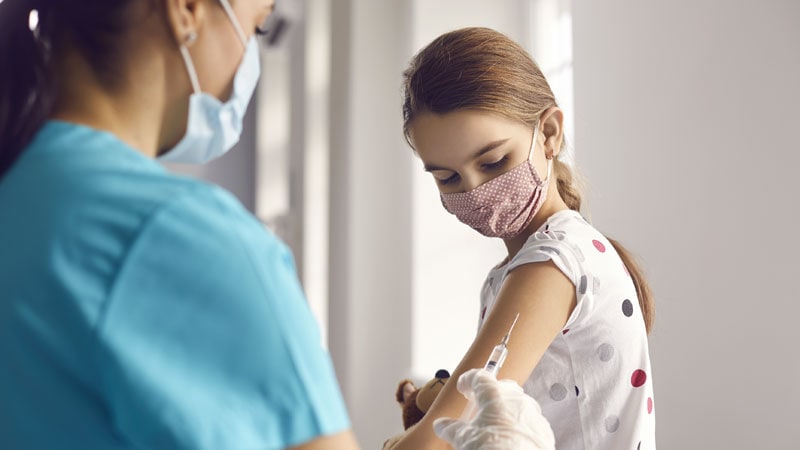
Covid-19 vaccine, Pfizer, is approved for children who are 12 and above. Since the vaccine has been approved, a lot of parents have few doubts. While the adults have taken the vaccination, they are a little doubtful for their kids and the COVID-19 vaccine. Here are all your most common questions answered about kids and the Covid-19 vaccine.
1. Why should I get my child vaccinated?
Since the pandemic started, more than 3.85 million youngsters in the United States have tested positive for COVID-19. Children currently represent almost one-fourth of all new cases in the United States. Specialists do think immunizing children will assume a significant part in finishing the pandemic. The information from a Pfizer preliminary in youths tracked down that the vaccine was 100% viable at forestalling COVID-19. That is considerably more powerful than in grown-ups. Immunizing kids secure them against COVID-19. It additionally forestalls transmission so we don’t begin to make more variations that may not be receptive to the antibody.
2. What are the risks of vaccinating my child?
The Pfizer vaccine was studied in more than 2,000 adolescents. Half got a placebo, while the other half got two portions of the immunization — the same doses that the older teenagers and grown-ups get. That preliminary information was verified by authorities with the Food and Drug Administration just as the Centers for Disease Control and Prevention. The American Academy of Pediatrics has inspected it and has given immunization of young people a green light. As such, this preliminary information has been vigorously examined, and specialists all accept the antibody is protected.
3. What are the most common side effects?
Young people in the Pfizer clinical preliminary most ordinarily experience side effects like pain at the injection site, fatigue, headache, chills, muscle pain, fever, and joint pain. They are all totally under what we know from preliminaries and genuine information in older teens and grown-ups.
4. What will the sign up process be like?
Finding your kid an appointment may take a touch of sleuthing and tolerance. Yet fortunately, it ought not to be however troublesome as it might have been for grown-ups. Now there are antibodies accessible. Vials and doses are waiting and prepared. Along these lines, the accessibility now for teenagers will be a lot quicker than it was when everyone was pausing and we were working through the layered framework. How this antibody is carrying out to the 12-to 15-year-old populace is that a significant number of the enormous children’s hospitals are giving it. Some community hospitals are directing it. All the mass vaccination places in the various states are directing it. Furthermore, there are a few drug stores that are overseeing it.
5. What will change for my teen after the vaccination?
A great deal, really. Since the CDC is progressively certain that individuals who have been completed vaccinated can begin doing the things that one had to quit doing as a result of the pandemic. Youngsters who take the vaccines ought to be all the more allowed to socialize, travel, see companions, sing in an ensemble, play high sports games, and by and large return to normal.
6. Will schools require COVID-19 vaccines?
There aren’t any obvious answers now about whether schools can lawfully require students who need to get vaccines as such before they return in the fall. A few colleges are now demonstrating that vaccination will be needed for students seeking a return for the following academic year. Each state as of now needs probably a few vaccines for youngsters going to public school.
7. Will boosters be necessary?
Now, specialists don’t have a clue how long resistance lasts after vaccination for either grown-ups or kids — however, the best accessible information recommends in any event for a half year. Researchers are effectively considering that question and desire to have answers soon, as it will totally affect whether youngsters need to get normal boosters. Yet, there simply isn’t sufficient information as of now to know.
8. When will my younger child be eligible?
We’re trusting that by fall, so by the beginning of the school year, a vaccine will be accessible for youngsters 6 years old and up. However, we’ll need to perceive how that carries out. Pfizer and Moderna are as of now considering their vaccines in youngsters under 12, and specialists are looking actually carefully at dosing. It is possible that younger kids don’t need a similar size portion as young people, adolescents, older teenagers, and adults.
9. Does vaccination protect my not-yet-eligible kids?
Indeed. If you have an older youngster in your family who gets vaccinated, that in a roundabout way gives extra security to your younger kid (or kids). By ensuring every individual who is eligible to take the vaccine in your family is — including the grown-ups — you’re chopping down transmission hazard at home. Which may likewise change how you consider — and plan for — things like summer trips, playdates, and other social gatherings.
